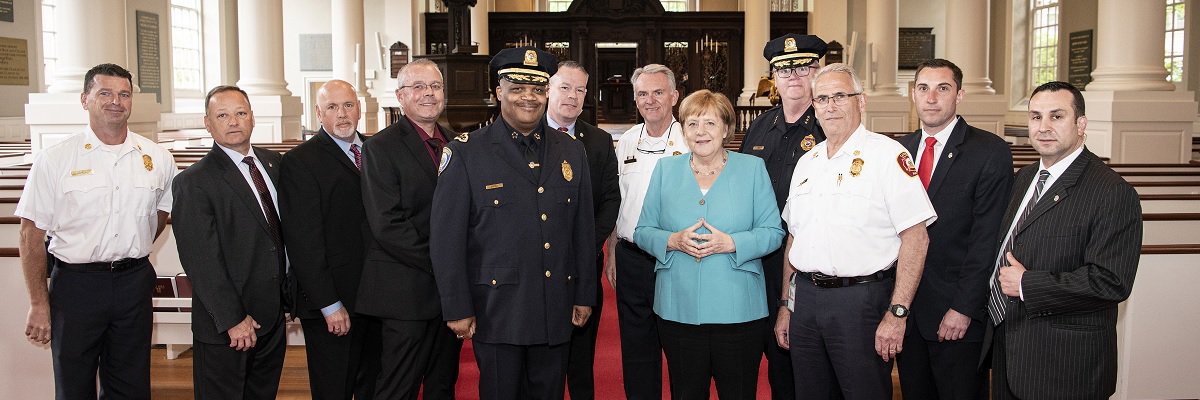Massachusetts is known for its habit of keeping public records private, and that lack of transparency isn’t limited to officials at the state level. While we can all agree that Massachusetts’ open meeting and public records laws exist on paper, actually using these laws to find out what’s going on during the executive sessions of city council and select board meetings is another thing entirely.
City councils and select boards sometimes convene in private “executive sessions” to discuss numerous issues, and the minutes of those meetings are supposed to be reviewed and made publicly available at “reasonable intervals” under the Massachusetts Public Records Law. In order to find out how many cities and towns actually comply with that little piece of the law, I requested executive session minutes from 2010 to 2015 for all 20 municipalities in Bristol County.
While some municipalities have released records, some have requested more time to allow for the review and redaction of the records and followed up to assure me they’re working on it (thanks Taunton!). Others have been less receptive to the idea of releasing public information to the public. Imagine what might happen if people actually had a full picture of how their local government’s actions affect them - they might gasp actually start showing up to vote in municipal elections!
In all fairness to the voters who can’t bring themselves to pay attention to even the public portions of these meetings, much less try to pry executive session minutes from the grip of local officials, those meetings are boring. There are some notable exceptions, such as an April 2016 meeting of the Chatham Waterways Committee that devolved into name calling and punch throwing …
but for the most part, these local meetings feel like the dreariest psych ward in hell. But despite how terminally tedious these meetings can be, there is some important business being handled.
Much of that business takes place in executive session.
A council may close its doors to the public to discuss strategy about pending litigation, union contract negotiations, the health or character of public employees, strategy sessions for negotiations with nonunion personnel, discussing or investigating charges of criminal misconduct among public employees, interviewing applicants for public jobs, discussing the purchase, exchange, or lease of public property - all of these matters can be legally discussed in private so as to not compromise the respective processes. But once the items have been resolved, the records are supposed to be made public.
So how diligent are local officials about making sure these private deliberations are made public at appropriate intervals?
Responses varied from town to town, with some just straight-up ignoring the requests, and others trying to worm their way out by saying the minutes have not yet been reviewed. The term “reasonable interval” is open to interpretation, sure - but if a town hasn’t reviewed and released minutes from 2010 and considers that a reasonable amount of time to withhold information from the public, it’s fair to say that they aren’t making a good faith effort to reasonably interpret the word reasonable.
The law states that once the issues addressed in the meeting have been resolved, the minutes from those meetings should be released. For example, if the minutes include deliberations on legal strategy in a lawsuit against a town and the town reaches a settlement with the plaintiff, the issue has been resolved. If a town believes that there are exemptions in the public records law that allow it to continue to keep the records private, those exemptions are supposed to be cited in the rejection of the records request.
Seekonk Board of Selectmen Executive Assistant Christina Testa said that after reviewing all of the minutes from 2010 to 2015, none have been approved for release. However, she did not cite the exemptions that allows the town to withhold the records.
Fairhaven responded with heavily redacted executive session minutes from 2014 to 2015, but failed to cite any exemptions. Some of the documents are so heavily redacted that the only information disclosed is that a meeting was convened and then adjourned.
Town Clerk Anne O’Brien also said she was satisfied that providing me with mostly blacked-out minutes from one of the five years I requested is close enough to filling the actual request: “I consider this public records request to be complete with no further action required from this office.” I am appealing that decision.
Dartmouth Town Clerk Lynn Medeiros replied to my request by phone, ensuring me that the records I requested could be found on the town’s website. I wanted to believe that this unheard-of-in-Massachusetts transparency existed in Dartmouth. But it turns out that while minutes from recent select board meetings were easy enough to find on the website, executive session minutes were nowhere to be found.
However, some municipalities are really making an effort.
Taunton City Clerk Rose Marie Blackwell followed up with me by phone, telling me that she’s working to fill my request. She noted that it’s a time-consuming and laborious process, which is fair. However, the fact that reviewing and releasing five years worth of meeting minutes is a big project serves to illustrate further that it ought to be done regularly.
Failing to regularly review and release executive session minutes doesn’t just create a huge chore for records custodians if anyone ever requests them, it makes getting those records kind of expensive in some towns, and absurdly expensive in others. Freetown, for ironic example, says it will take 36 hours of labor to review 157 “sets” of executive session minutes, at a cost of $575.28.

For comparison, Somerset, through what is obviously some kind of dark magic, says it will take just two hours of work to review and redact 474 pages of minutes, and will cost $76.01.
Not only does the Massachusetts open meeting law not work very well when it comes to keeping meetings open and transparent, it doesn’t apply evenly to municipalities depending on how their local government is set up. The open meeting law applies to “public bodies” - but meetings between a mayor and department head or ad hoc communications between a mayor, public employees, and attorneys are not subject to the Open Meeting Law.
In some cities, such as Fall River, the strong mayor/weak city council setup means that numerous deliberations affecting the public are kept private forever. When I requested executive session minutes from Fall River, the city came up with zero pages, because the city council never needs to go into executive session.

That’s because the discussions between the mayor, department heads, and attorneys with whom he consults do not constitute public bodies for the purposes of the open meeting law. Because of this, they are not required to keep, review, and release minutes of their meetings like city councils and select boards are required to do. Despite conducting the same business, the city is subject to completely different rules regarding transparency.
If all a municipality needs to do in order to evade the public records law is tweak its charter, what’s to stop every city and town in Massachusetts from doing it? Well, changing a charter can be a lengthy and difficult process. But as luck would have it, they don’t even need to bother changing their charters - nobody is checking in to ensure they are reviewing and releasing their executive session minutes at “reasonable intervals.”
Former Fall River City Councilor and current Chairman of the Charter Review Commission Michael Miozza says that the commission doesn’t plan on asking for massive charter changes during the current review, as the process of getting it current with state laws is a huge task by itself. But he added that he’d like to see some of the responsibilities currently under the purview of the mayor shared with the city council.
“We’ve asked for the city council to be able to vote on appointments of board and commission members,” Miozza said. “What you’re talking about seems to be a much deeper dive, and I can’t imagine addressing those issues … It just seems like too deep a dive for this time around.”
 Image via Wikimedia Commons
Image via Wikimedia Commons
Fall River City Council President Shawn Cadime said that there are some deliberations he’d like to see the council have a larger role in, such as union contract negotiations. “There are some contracts we just ratify, we don’t do negotiations,” Cadime says. “I’d like to, as a council, have a little more authority over approving contracts, collective bargaining … We’re just funding these contracts, and not having a say.”
Fall River Corporation Counsel Joseph Macy says that items that are often deliberated on by select boards and city councils elsewhere are subject to a less formal process under Fall River’s government structure. Say, for example, someone is seeking a license for a street festival or another public celebration: “Most of the time, it’s, ‘Hey can you come down to my office? This just came across my desk, do you know anything?’“
“I would call it ad hoc. When the mayor needs to know something from me, he comes to me. When I need to know something, I go to him,” Macy explained.
When it comes to discussions of legal strategy regarding lawsuits against a municipality, minutes of such meetings among a city council are subject to public release after they are resolved, but that’s not the case under Fall River’s current setup. “Frankly, I don’t really deliberate with anyone in terms of defending lawsuits, that’s my job,” Macy said. “What I do in my office is not public record and never would be.”
It doesn’t make any sense to allow deliberations that are supposed to be recorded and released under one local government structure to remain private under another. The same issues are being discussed, the same kinds of decisions are being made, and the information is equally pertinent to the public regardless of the structure of the meetings or the titles of the attendees.
Image via @ourmidlandca




